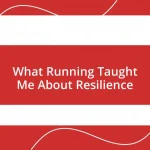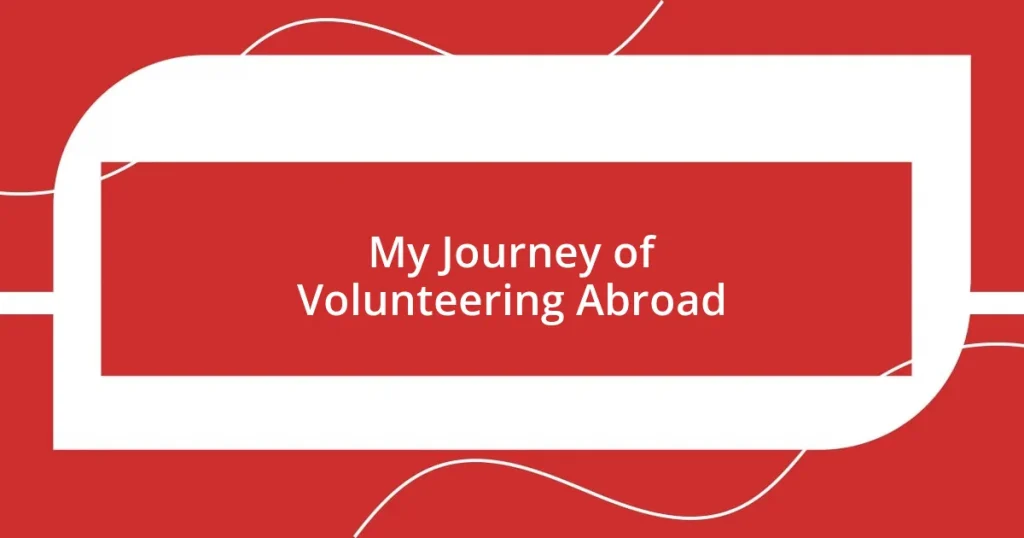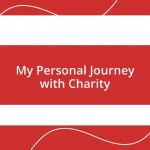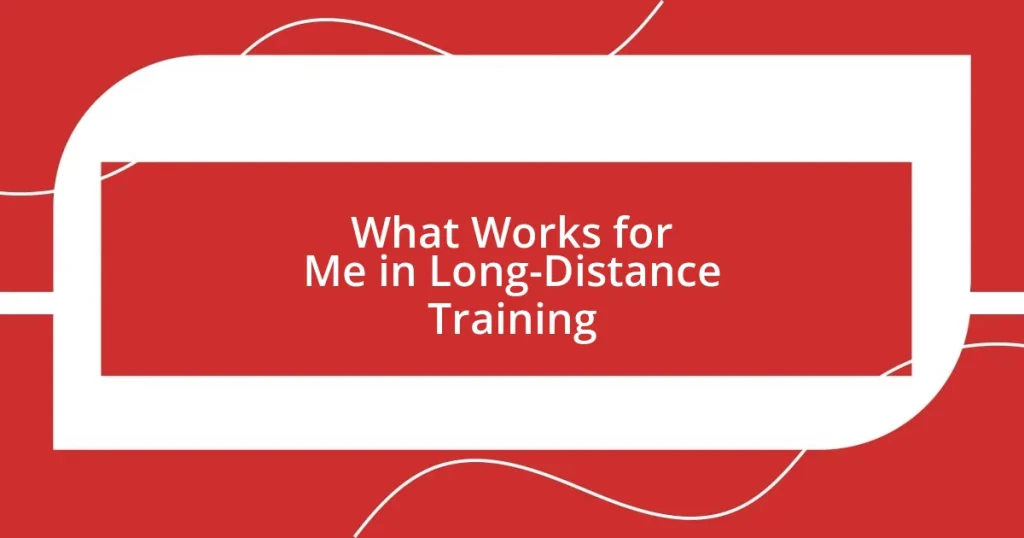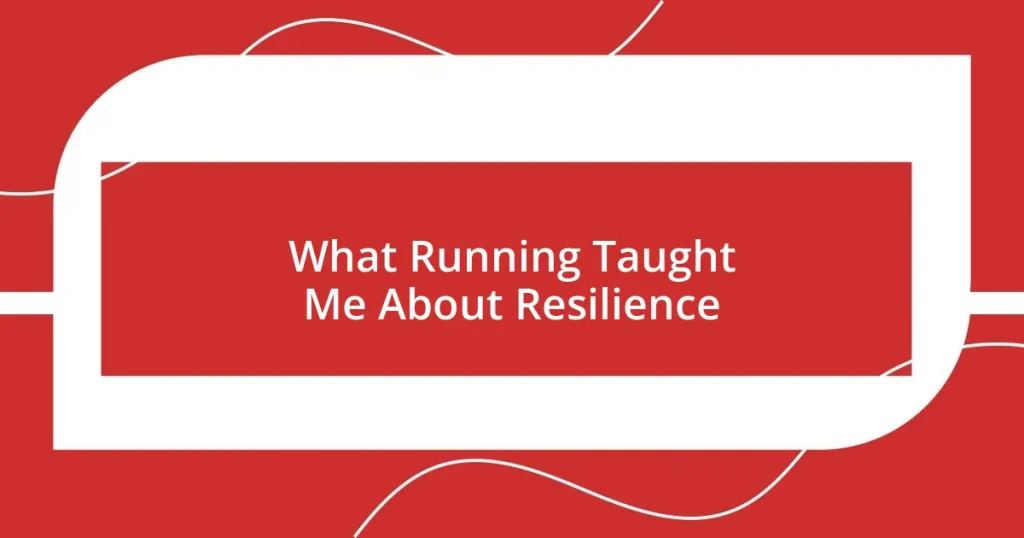Key takeaways:
- Identifying personal passions is crucial when selecting a volunteering program to ensure alignment with values and interests.
- Preparation involves not just logistical aspects but also setting personal goals to enhance engagement in the experience.
- Adapting to a new culture requires patience and open-heartedness, transforming initial struggles into meaningful connections.
- Reflecting on experiences, especially through journaling, can reveal significant insights and personal growth gained from seemingly small interactions.
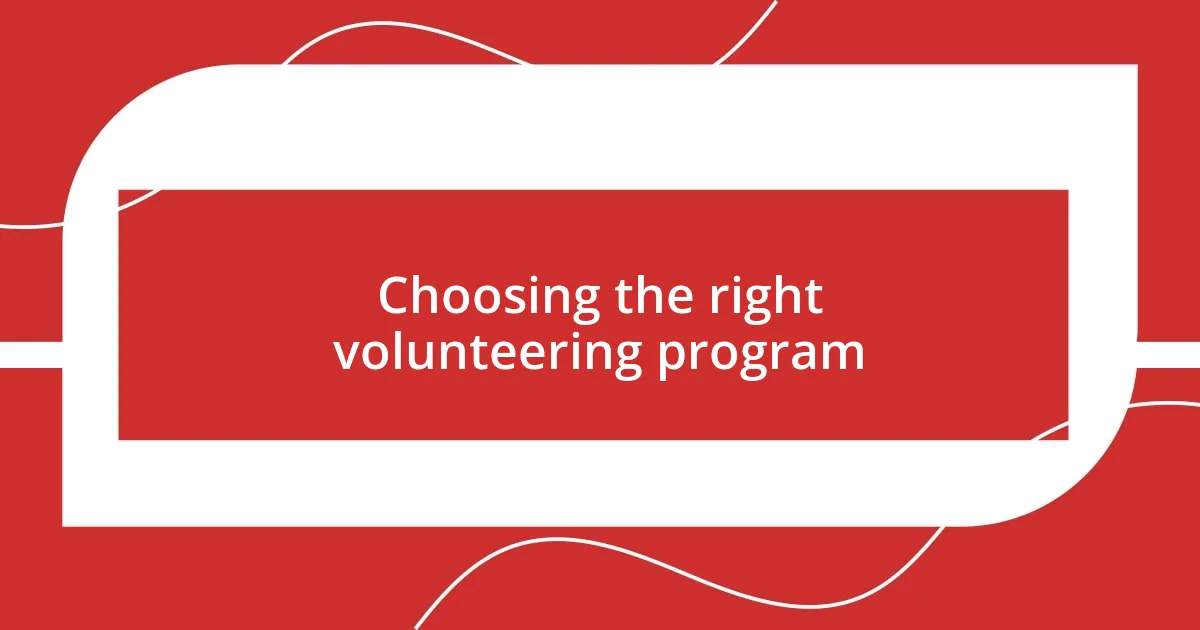
Choosing the right volunteering program
Choosing the right volunteering program can feel like navigating a maze. I remember staring at a long list of options, each one promising a life-changing experience. It led me to wonder: what truly matters to me in this journey?
Consider what you’re passionate about. For instance, I’ve always had a soft spot for wildlife conservation. When I came across a program focused on protecting sea turtles, it resonated deeply with my heart. Reflecting on my interests helped me narrow down my choices and find a program aligned with my values.
Another crucial aspect is the program’s reputation and support system. I once joined a project that seemed perfect, but it ended up lacking in guidance. That experience taught me the importance of choosing a reputable organization with a network of support. Have you thought about the kind of backup you might need while volunteering abroad? Trust me, it makes a world of difference.
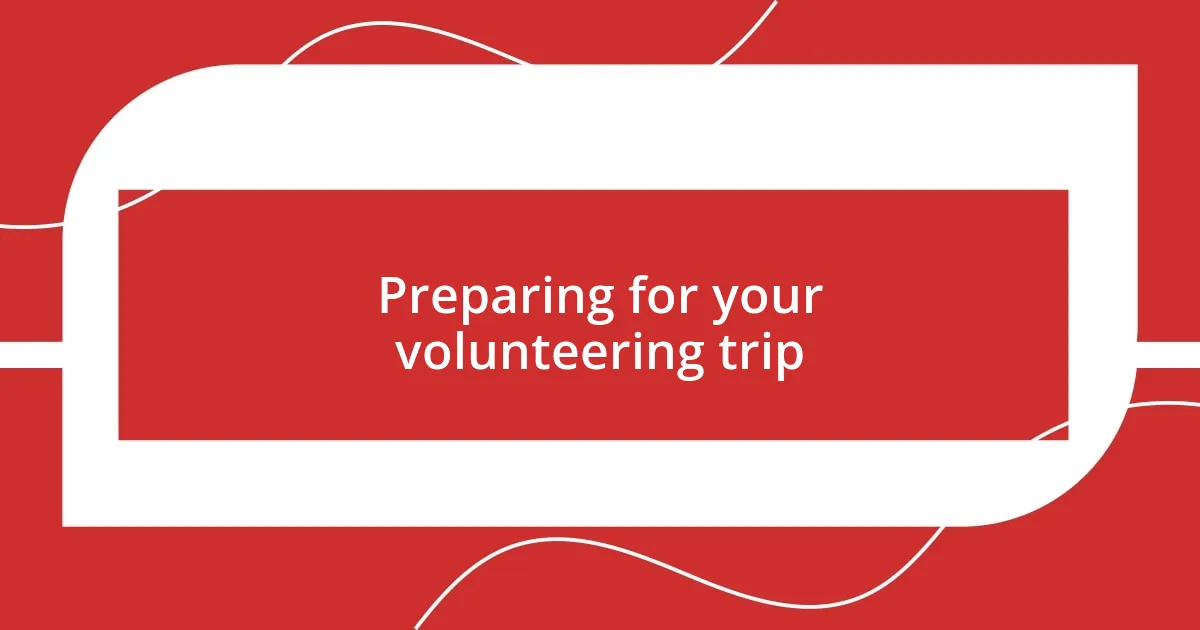
Preparing for your volunteering trip
Preparing for a volunteering trip is more than just packing your bags; it’s about setting the right intentions and organizing your thoughts. When I was getting ready for my first trip, I created a clear list of what I wanted to achieve. This clarifying process helped me focus not only on tasks but on my personal goals for the experience. It’s amazing how much clearer everything becomes when you take the time to visualize your journey.
Here’s a handy checklist to guide your preparation:
- Research and select your destination carefully, considering factors like safety and culture.
- Gather important documents, like your passport and vaccination records.
- Create a budget, including travel, accommodation, and daily expenses.
- Pack essential items according to the climate and needs of your project.
- Connect with fellow volunteers or a local community online for insights.
- Brush up on language skills if necessary; even a few phrases can foster connections.
I still feel a rush of excitement thinking about my first volunteer experience. I remember meticulously rolling my clothes and tucking in notes and little gifts for the children I would meet. The joy and anticipation were palpable, making me feel alive with possibility. I can’t emphasize enough how this mindset shift – from simply preparing to truly engaging with the journey ahead – transformed my approach and, ultimately, enriched the adventure.
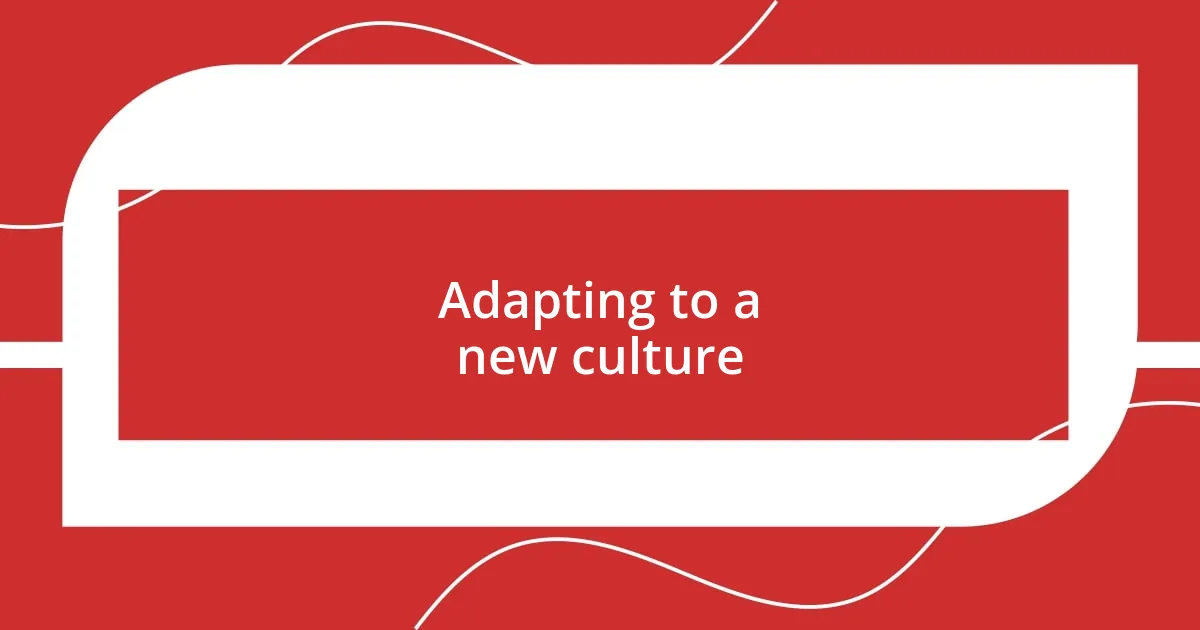
Adapting to a new culture
Adapting to a new culture is a journey of its own, one that involves more than just picking up a few phrases or adjusting to local customs. When I volunteered in a small village, the vibrant colors and sounds were overwhelming at first. I remember stumbling through initial conversations, unsure of the local dialect. Yet, this struggle turned into a beautiful connection that helped me feel more at home with the locals. It was like peeling back the layers of an intriguing story.
As I immersed myself in the day-to-day life, I found comfort in small rituals. Sharing meals with the families I worked alongside became a cherished routine. I vividly remember the first time I was invited to a local festival, surrounded by laughter and singing. It transformed my perception of the culture, and I realized that adapting wasn’t about changing myself but embracing the difference with an open heart.
Experiencing culture shock is natural, and it’s a topic that kept popping up among my fellow volunteers. It can lead to feeling isolated or overwhelmed, but these moments often serve as doorways for deeper understanding. During my time volunteering, I learned that patience is essential. Engaging openly with locals and truly listening to their stories paved the way for meaningful exchanges and friendships. What lessons have you learned from adjusting to new environments?
| Challenge | Adaptation Strategy |
|---|---|
| Language Barrier | Engage with locals and practice regularly |
| Food Differences | Try traditional dishes and share meals with locals |
| Cultural Norms | Observe and ask questions with respect |
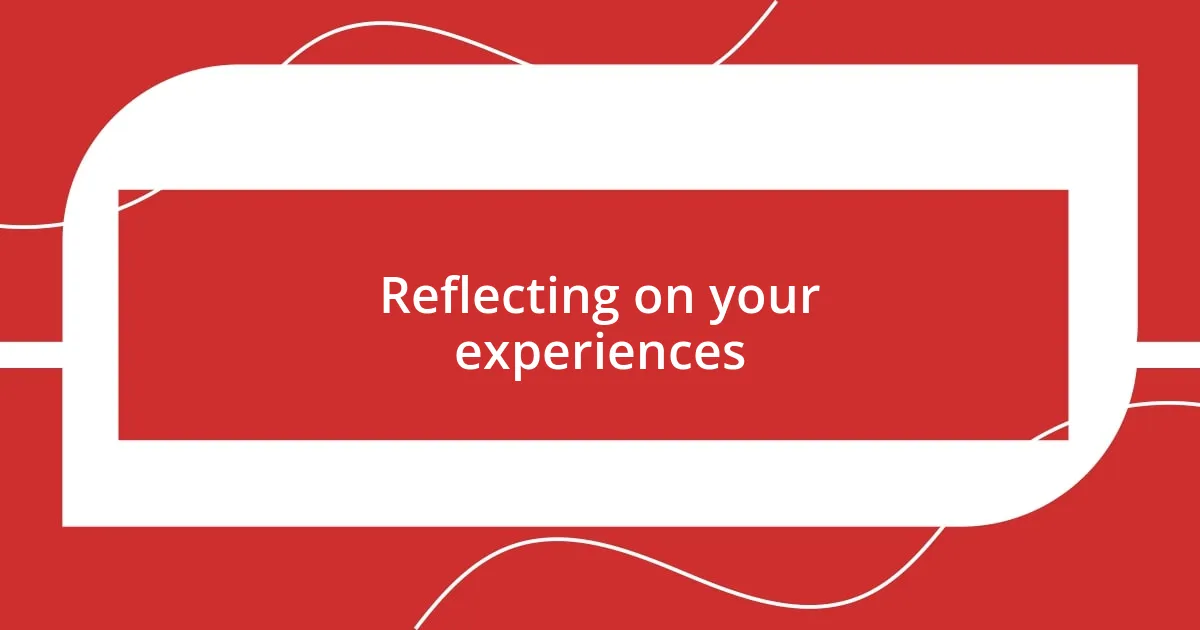
Reflecting on your experiences
Reflecting on my experiences abroad often leads me to a profound sense of gratitude. I vividly recall a moment during my last volunteering trip when I sat alone, watching the sunset over the mountains. It felt as if each vibrant hue painted my memories—a reminder of the laughter, struggles, and friendships I forged. Have you ever experienced a moment where the scenery seemed to encapsulate an entire journey for you?
Upon returning home, I spent time journaling about my daily interactions. I realized that those seemingly trivial moments—like helping a child with their homework or enjoying spontaneous conversations with locals—were the highlights of my trip. Each entry in my journal was a precious gem, revealing the layers of growth and understanding I gained. Looking back, this reflection was like sifting through treasure, allowing me to appreciate the value of seemingly small experiences.
Sometimes, I find it beneficial to connect my reflections to broader themes in my life. For instance, overcoming language barriers taught me the importance of patience—both with myself and with others. One morning, while I struggled to express my thoughts in a meeting, it hit me: vulnerability can be a bridge, not a barrier. Each challenge I faced contributed to a deeper understanding of myself and the world around me. How has your journey shaped your perspective on challenges?

